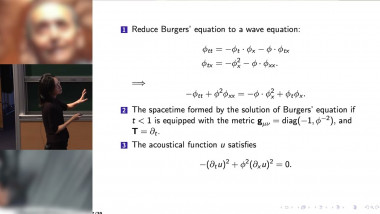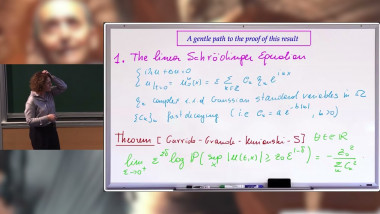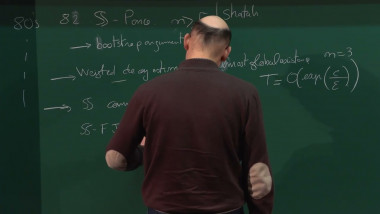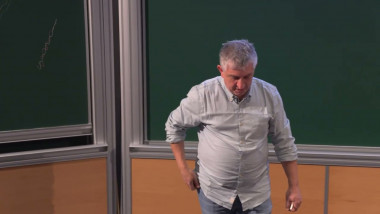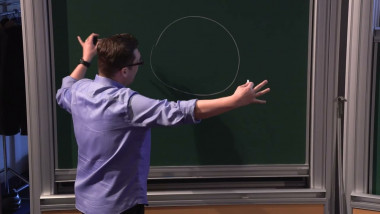Appears in collection : Mathematical aspects of the physics with non-self-adjoint operators / Les aspects mathématiques de la physique avec les opérateurs non-auto-adjoints
In the last decade, there has been an increasing interest in the p-Laplacian, which plays an important role in geometry and partial differential equations. The p-Laplacian is a natural generalization of the Laplacian. Although the Laplacian has been much studied, not much is known about the nonlinear case p >1. Motivated by these facts, the purpose of the present paper is to review recent developments in the spectral theory of a specific class of quantum waveguides modeled by the Dirichlet Laplacian, i.e. p = 2, in unbounded tubes of uniform cross-section rotating w.r.t. the Tang frame along infinite curves in Euclidean spaces of arbitrary dimension. We discuss how the spectrum depends upon three geometric deformations: straightness, asymptotic straightness, and bending. Precisely, if the reference curve is straight or asymptotic straight, the essential spectrum is preserved. While dealing with bent tubes, such geometry produces a spectrum below the first eigenvalue. All the results confirm the literature for the Laplacian operator. The results are obtained via a very delicate analysis since the nonlinearity given by the p-Laplacian operator adds different types of difficulties with respect to the linear situation. These results are contained in a work written jointly with D. Krejčiřík.
